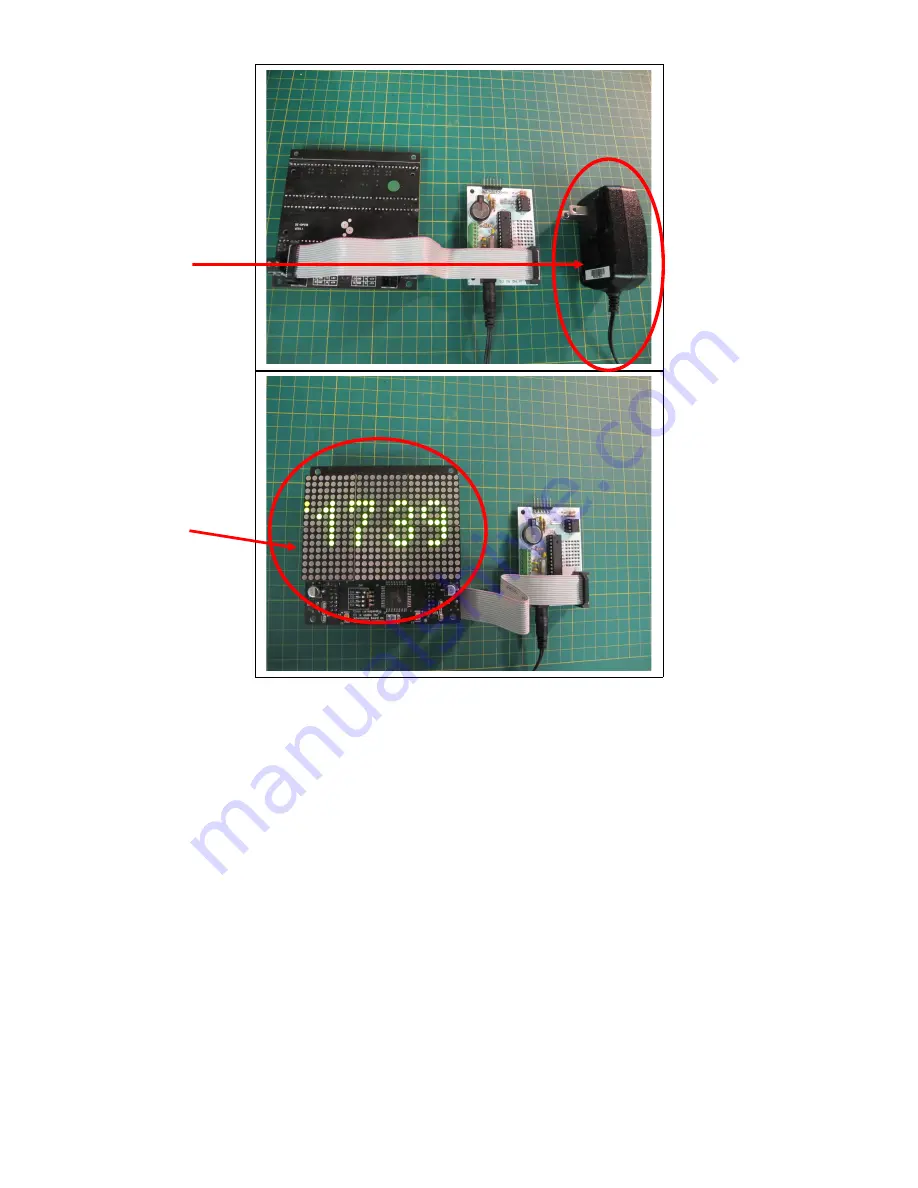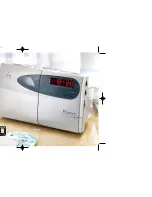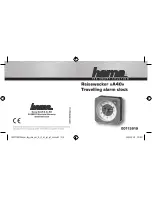
F)
Once you’ve ensured your screen works properly, you can unhook the power
supply and remove the ribbon cable from the PCB. You should then use the
white zip tie to bundle one loop of excess ribbon cable.
20
Plug the power
supply into the
board and plug the
supply into the wall
The display will
show a simple
time animation
with hours and
minutes
















































